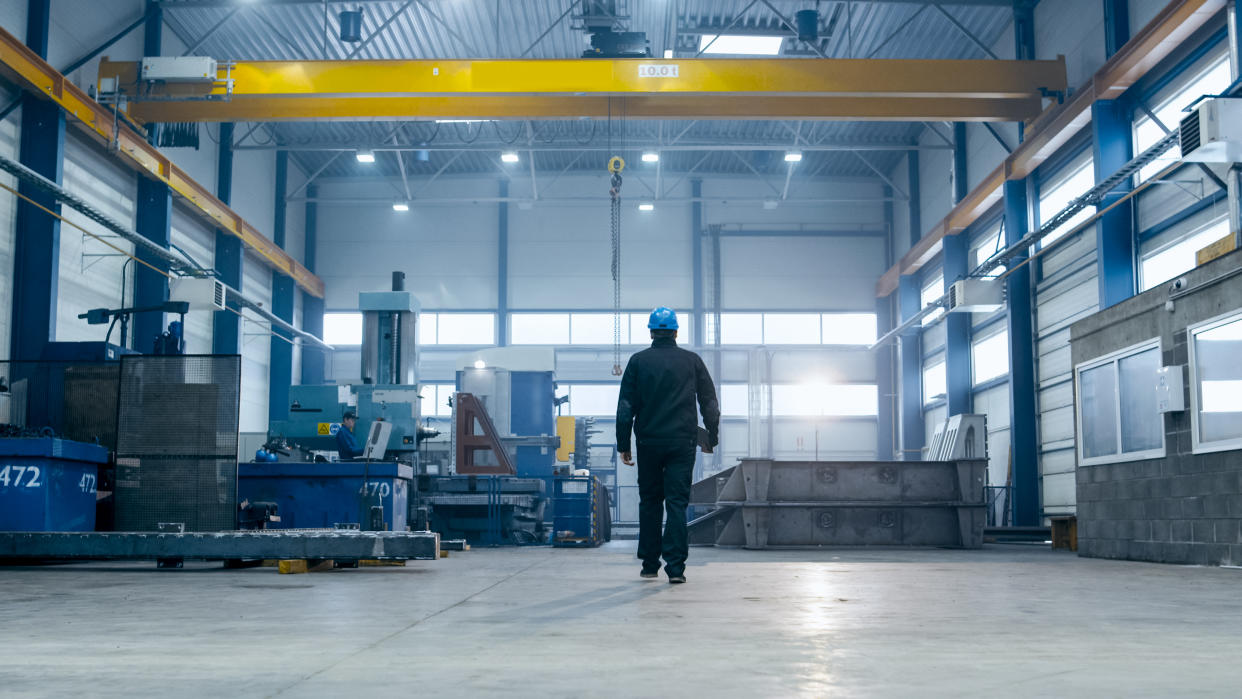Eurozone business activity stagnates in September as rebound stalls

Business activity stagnated across eurozone manufacturers in September, according to market research firm IHS Markit.
After seeing a rebound in July and a little bump in August, “the eurozone’s economic recovery stalled in September, as rising COVID-19 infections led to a renewed downturn of service sector activity across the region,” said Chris Williamson, chief business economist at IHS Markit.
Its flash Eurozone Composite PMI dropped to 50.1 in September, from 51.9 in August, as “rising infection rates and ongoing social distancing measures curbed demand, notably for consumer-facing services,” IHS Markit wrote.
Faster growth of manufacturing, led by Germany, was offset by a renewed downturn in the service sector, which was often linked to resurgent COVID-19 infection rates, IHS Markit reported.
Watch: What is a V-shaped economic recovery?
“The Eurozone recovery has stalled before it even reached third gear,” Jarek Sklodowski, senior trader at financial Markets Online said in a note. “Two months of surging growth and optimism have come screeching to a halt, with the summer’s impressively v-shaped recovery giving way to a flatlining sense of uncertainty in September.”
READ MORE: ‘More masks, less alcohol’: German state that led first lockdown to re-impose rules as cases surge
In France, the flash composite PMI fell to 48.5, down from 51.6 in August — a four month low overall — amid renewed disruption from the coronavirus pandemic.
The country is experiencing a surge in new coronavirus cases. On Tuesday (22 September), it reported just over 10,000 new daily infections, and has had 468,069 to date.
“The fresh downturn was predominantly driven by a solid reduction in activity at services firms, while manufacturers recorded a slightly faster output expansion than in August,” IHS Markit said.
In Germany, Europe’s largest economy, the IHS Markit’s flash composite PMI showed a further increase in business activity in September, powered by “a sharp rise” in production. But it noted that the pace of growth was slowing for the second month in a row.
Watch: What is a recession?
The Germany composite index registered 53.7 in September. “While indicative of a solid rate of growth, the latest reading was down from August’s 54.4 and further below the near two-year high seen in July, pointing to a continued loss of momentum in the recovery from the COVID-19 shutdown,” IHS Markit said.
READ MORE: Coronavirus: German economy recovering ‘more favourably’ than expected
Consumer morale in Germany stagnated heading into October, according to the latest data from German market research institute GfK on Wednesday.
“It seems as if the massive stimulus packages for consumers and companies are the right measures to help Germany get out of the worst recession in post-war history,” GfK consumer expert Rolf Buerkl said, noting that consumer confidence had stabilised despite the recent rise in COVID-19 infections and the prospect of fresh lockdown restrictions.
Bavaria, Germany’s largest state by size, announced a raft of fresh coronavirus restrictions on Tuesday (22 September), to be applied to localised hotspots as they happen. The new rules include mandatory masks in crowded places, a ban on drinking alcohol in public places, and an 11pm curfew on bars and restaurants.


